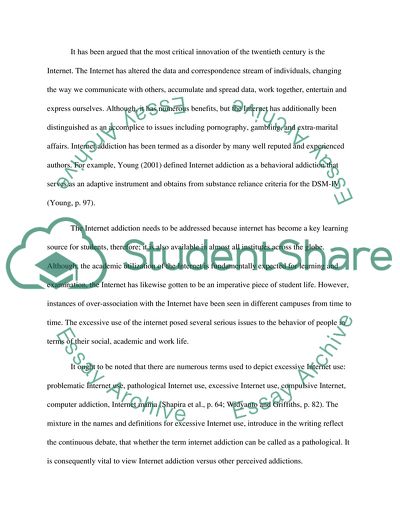Cite this document
(Meanings of Addiction and Internet Dependence Literature review - 1, n.d.)
Meanings of Addiction and Internet Dependence Literature review - 1. Retrieved from https://studentshare.org/social-science/1836576-digital-economy-literature-review
Meanings of Addiction and Internet Dependence Literature review - 1. Retrieved from https://studentshare.org/social-science/1836576-digital-economy-literature-review
(Meanings of Addiction and Internet Dependence Literature Review - 1)
Meanings of Addiction and Internet Dependence Literature Review - 1. https://studentshare.org/social-science/1836576-digital-economy-literature-review.
Meanings of Addiction and Internet Dependence Literature Review - 1. https://studentshare.org/social-science/1836576-digital-economy-literature-review.
“Meanings of Addiction and Internet Dependence Literature Review - 1”, n.d. https://studentshare.org/social-science/1836576-digital-economy-literature-review.


